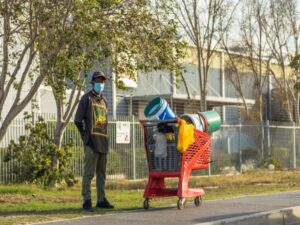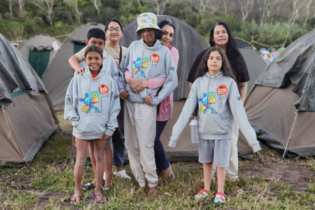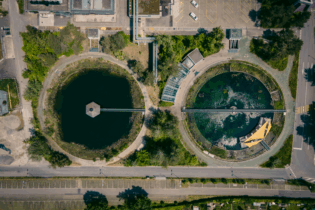Local activists, Thando Fatyela and Siya Mtsako founded Intsika Yethu Foundation to tackle the issue of waste in communities. While introducing the youth to various methods of earning an income through creating greener communities.
Intsika Yethu Foundation is an environmental organisation that partakes in recycling projects and plants around the community of Strand The foundation is running a year-long project with Balwin Foundation NP. “We are targeting to work with 50 Informal local waste pickers from the communities of Lwandle and Nomzamo, the purpose of this initiative is to provide support and mentorship for informal local waste pickers and link them with local buy-back centres in order for them to sell their recyclables at a reasonable rate,” said Fatyela. IOL reports that an estimated 75% of litter in oceans comes from land while many cities are faced with illegal dumping issues. Approximately, R52 million was spent cleaning up illegal dumping sites. Programmes are provided to local waste pickers through the foundation, to inform and create awareness about recycling services, environmental education, and awareness of how to start a recycling business and register it. Waste pickers involved in the programme are also provided with basic recycling start-up kits.The foundation has a small temporary recycling site which is managed and administered by the two activists. It is a small-fenced container donated by generous sponsors.
“The drive behind this programme is to promote cleanliness within the community and to divert waste from reaching landfill sites, through mitigation of land pollution and promoting recycling as a waste management approach,” said Mtsako. “We are really grateful to Balwin Foundation NPC for providing initial support as we start this programme, at least the local waste pickers will get start-up kits to support their day-to-day activities of recycling,” he added. The duo pleads with the government to provide trolleys which will assist with allowing mobility in the collection of recyclables and involvement from members of the community to support their families to generate income. “Most of the local waste pickers have no access to transport and the buyback centre does not provide collection transport for buying the recyclables from local waste pickers,” Mtsako concluded.






